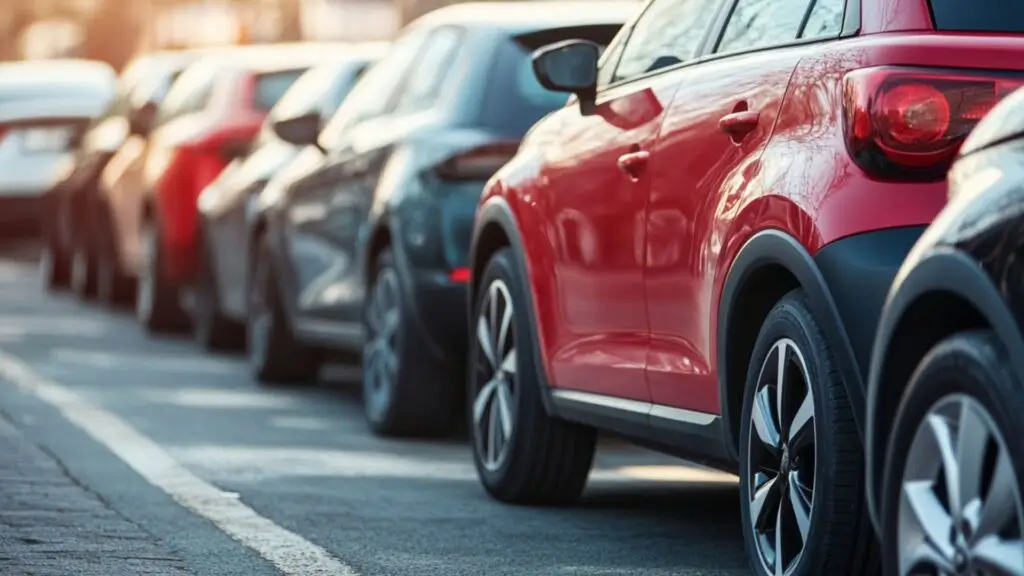
What Is the Cheapest State to Buy a Car in 2025?
The USA offers an incredible variety of high-quality, reliable cars at competitive prices that can satisfy even the most experienced drivers. However, buying a car requires careful consideration of many factors to ensure you get the best deal possible. The cheapest state to buy a car in 2025 is Oregon, offering the lowest out-the-door (OTD) price for the average new vehicle at around $50,300. It beats the national average of $49,740 by eliminating sales tax and reducing other fees.
OTD means the full cost to drive your car off the lot, which includes the vehicle price, sales taxes, registration fees, document fees, and any dealer add-ons. Multiple factors affect this total cost. Sales tax varies significantly by state — Oregon, Delaware, Montana, New Hampshire, and Alaska have no sales tax, while states like California and Tennessee charge some of the highest rates. Let’s explore all the details together.
Our Methodology: How We Compare States
Onyx Auto Transport is your partner to choose the best. Our company analyzes the cheapest places to buy a car by comparing OTD prices across all 50 states. OTD represents the total cost to drive away, including the vehicle price, sales taxes, title fees, and registration fees. We exclude financing interest, insurance, and optional warranties to focus on upfront costs.
Our goal is to identify the most affordable states to purchase vehicles in 2025, using standardized data for a fair comparison. The average new car price is $50,000, according to Kelley Blue Book’s September 2025 report. Used cars average $28,000, per Cox Automotive data. New vehicles are taxed on their full value, whereas used cars often qualify for exemptions or lower tax rates in some states, such as North Carolina.
Here’s our approach to finding the cheapest states to buy vehicles:
- Sales tax data: From Tax Foundation and World Population Review. Rates range from 0% (in Oregon and Delaware) to 8.25% (in Nevada). We apply state averages, including local add-ons, up to 5.44% in Alabama.
- Doc fees: From CarEdge and Edmunds. Averages vary from $55 in California to $899 in Florida. We use medians to reflect typical charges.
- Title/registration fees: From DMV.org and AAA. New car fees range from $8 in Arizona to $316 in Oregon. This includes one-time title fees ($15-$100) and annual registration.
- Dealer pricing/add-ons: From Consumer Reports, based on KBB transaction prices. Add-ons typically range from $500 to $1,000, including items such as rustproofing and VIN etching. We estimate $750 nationally, adjusted for state caps.
We sum these costs for OTD per state. Key differences: New cars incur $3,000-$5,000 in additional taxes compared to used cars. States with 0% tax save buyers $4,000 on new vehicles. Exclusions: Trade-ins and rebates (which vary by model). This ensures accurate rankings for the cheapest states to buy a car.
The Top 10 Cheapest States to Buy a Car

The states with the cheapest cars save buyers thousands on OTD costs, which include vehicle price, sales tax, doc fees, and registration. We rank the top 10 cheapest states to buy a car for 2025 using a $50,000 new vehicle. The OTD index uses 100 as the national average ($51,740). Lower indices indicate better savings, and tax-free states are more prevalent due to lower costs.
Here are the top 10 cheapest states to buy a car:
| State | OTD Index | Sales Tax | Doc Fee | Registration | Reason for Savings |
| Oregon | 92 | 0% | $115 | $316 | No sales tax saves thousands |
| Montana | 93 | 0% | $300 | $217 | No sales tax significantly reduces total cost |
| Delaware | 94 | 0% | $200 | $40 | Tax-free purchases keep costs low |
| New Hampshire | 95 | 3% | $250 | $60 | Zero sales tax means lower overall price |
| Alaska | 96 | 5% | $200 | $100 | No sales tax keeps prices down |
| North Carolina | 97 | 3% | $599 | $60 | Low tax rate improves affordability |
| Wisconsin | 98 | 5% | $199 | $100 | Capped doc fees prevent overcharges |
| Virginia | 99 | 4.15% | $799 | $40 | Low registration fees balance out taxes |
| New Mexico | 100 | 4% | $250 | $30 | Minimal registration fees reduce total cost |
| Hawaii | 101 | 4% | $300 | $300 | Reasonable tax rates help with savings |
States with the cheapest cars typically have little to no sales tax, which significantly reduces the overall cost of a vehicle purchase. Oregon is a top choice, offering potential savings of up to $3,900 compared to high-tax states. While sales tax is a key factor, buyers should also verify local fees, registration costs, and dealership add-ons, as these can all affect the final price.
Taking time to research these details ensures a more accurate estimate of total expenses. With strategic shopping and a clear understanding of local regulations, car buyers can make smarter financial decisions and maximize their savings when purchasing a vehicle.
What to Know Before Buying a Car in Another State
Buying a car out of state can be a cost-effective option, especially in states with lower tax rates. Knowing the cheapest state to buy a car helps you plan your budget effectively. However, out-of-state purchases involve additional steps for registration, taxes, and transportation, so be sure to check state laws before making a purchase.
Here’s what you need to know:
- Sales tax rules: You pay tax in your home state, not the purchase state.
- Temporary Registration: Obtain a temporary tag to drive legally at home.
- Title transfer: Secure the title for home-state registration.
- Bill of sale: Ensure it includes the price and VIN.
- Odometer statement: Required for used cars to validate mileage.
- Smog/emissions test: Some states require this before registration.
- Insurance proof: Your home-state policy must be active.
- Transport cost: Factor in shipping or travel expenses.
- Inspection requirements: Verify your home-state safety inspection rules.
- Dealer fees: Confirm doc fees and extras upfront.
- Lemon law protections: Out-of-state buyers may not be eligible for coverage.
The location of your driver’s license may affect the purchase process. Some dealers require a local license for financing or paperwork; therefore, verify the requirements with the dealer beforehand. If your license has expired, renew it before negotiating. Out-of-state registration may require extra documents, most commonly proof of address. Contact your DMV to confirm requirements.
While finding what state has the cheapest cars matters, logistics are equally important. States like Oregon or Montana save you money on taxes, but transportation costs can add up. Compare all expenses — including travel, shipping, and fees. Research the reputations of dealers and plan your purchase carefully to avoid delays or penalties.
Frequently asked questions
Buying in a low-tax state like Oregon can save $3,000-$4,000 on a $50,000 car. Shipping costs range from $500 to $2,000, depending on the distance. Compare total out-the-door costs, including transport, to local prices. Savings often outweigh shipping fees for high-value items, such as vehicles.
You pay sales tax in the state where you register your vehicle, not where you purchase it. For example, if you buy a car in Montana (a state with no sales tax) but register it in California, you’ll still owe California sales tax ranging from 7.25% to 10.25%, depending on your county. This rule prevents buyers from avoiding taxes by shopping across state lines.
Doc fees are sometimes negotiable, especially in competitive markets. States with lowest car prices may also have lower documentation fees, making them more attractive options. In states where doc fees are high, such as Florida (averaging $899), you may find more room for negotiation. Ask upfront and compare dealers. Some states cap fees, limiting negotiation.
States capping doc fees include California ($55), Minnesota ($75), and Wisconsin ($199). Registration caps exist in Delaware ($40), New Mexico ($30), and Virginia ($40). Check state DMV websites for specifics.

